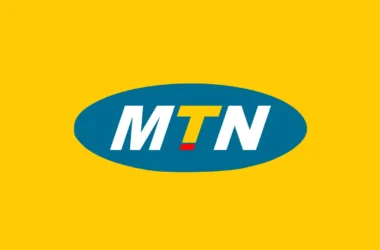Many therapists report Grow Therapy login problems like forgotten passwords, session timeouts, and multi-factor authentication confusion. These issues often disrupt accessing client data and conducting sessions efficiently, leading to delays or cancellations. Users share tips online such as clearing browser cache, verifying connections, and using password recovery options. While these problems affect therapy continuity, knowing common causes and solutions can help you manage access smoothly. Explore further to understand these challenges and how to overcome them.
Common Login Issues Reported by Therapists
Many therapists encounter login problems when accessing Grow Therapy, with issues ranging from forgotten passwords to account lockouts.
These challenges often stem from strict login security measures designed to protect sensitive client information. While these protocols enhance security, they can sometimes complicate the user experience, especially if you’re not familiar with multi-factor authentication or password reset procedures.
You might also face difficulties due to browser compatibility or session timeouts. Understanding these common issues helps you navigate the platform more efficiently, ensuring you can focus on providing care without unnecessary interruptions caused by login complications.
Experiences Shared on Social Media and Forums
Where do therapists turn when they face persistent login difficulties with Grow Therapy? Many share their experiences on social media and forums, providing valuable therapist feedback.
You’ll find that:
- Users report recurring issues with password resets and session timeouts.
- Some therapists exchange tips for troubleshooting common errors.
- Others highlight delays in customer support responses.
- A few share workarounds to maintain session continuity despite login problems.
This collective insight helps you understand the scope of issues and possible solutions, fostering a supportive community focused on improving your experience while serving clients effectively.
Impact of Login Problems on Therapy Practice
Although technology aims to streamline therapy sessions, login problems with Grow Therapy can disrupt your daily workflow and client interactions.
These issues affect therapy accessibility by delaying or canceling online sessions, which may hinder clients’ progress. You might face challenges rescheduling appointments or accessing important client notes, increasing administrative burdens.
Online session challenges can reduce your efficiency and create frustration for both you and your clients. Maintaining a reliable connection is essential to provide consistent care, and repeated login problems can undermine trust in the platform.
Understanding these impacts helps you prepare for and manage potential disruptions effectively.
Tips and Solutions for Resolving Access Difficulties
Experiencing login problems with Grow Therapy can interrupt your workflow, but several practical steps can help you regain access quickly.
First, use the password recovery option to reset your credentials securely.
Second, clear your browser cache and cookies to guarantee the user interface loads properly.
Third, verify your internet connection to rule out connectivity issues.
Fourth, consult Grow Therapy’s support resources or contact customer service for specialized assistance.
These measures help maintain your ability to serve clients efficiently, minimizing disruptions caused by access difficulties in your therapy practice.
Frequently Asked Questions
How Secure Is Client Data During Grow Therapy Login Issues?
Client data remains secure during Grow Therapy login issues because the platform uses data encryption to protect information from unauthorized access.
You can trust that privacy policies are in place to guide how your clients’ data is handled, even during technical disruptions.
These measures guarantee confidentiality and compliance, allowing you to focus on serving others while maintaining trust in the security protocols designed to safeguard sensitive client information.
Can Clients Access Their Sessions if Therapists Face Login Problems?
Clients generally can’t access their sessions if therapists face login problems, as session accessibility depends on therapist login.
This situation often raises client concerns about missed or delayed appointments.
Therapists are advised to promptly resolve login issues or communicate alternative arrangements to guarantee continuity of care.
Understanding this helps you prepare for and address potential service interruptions, maintaining trust and support for those you serve.
Are There Any Alternative Platforms Recommended by Therapists?
Yes, therapists often recommend alternative therapy platforms like SimplePractice, TheraNest, and TherapyNotes as reliable options.
These platforms offer features similar to Grow Therapy, including secure client portals and scheduling tools.
Therapist recommendations emphasize evaluating each platform’s ease of use, security measures, and customer support to guarantee smooth session delivery.
How Often Does Grow Therapy Update Its Login Security Features?
Grow Therapy updates its login security features regularly, typically aligning with industry standards for login frequency and security enhancements.
These updates aim to protect user data and maintain compliance with privacy regulations. You can expect periodic improvements such as multi-factor authentication and encrypted login protocols.
Staying informed about these changes helps you guarantee your clients’ information remains secure while you focus on providing consistent, trustworthy care through the platform.
What Support Options Does Grow Therapy Offer for Login Failures?
Grow Therapy offers several customer support resources for login failures, including detailed login troubleshooting tips on their website.
You can access step-by-step guides that address common issues like password resets and browser compatibility.
If these tips don’t resolve your problem, you can contact their support team directly via email or phone.
They respond promptly to help you regain access and continue serving your clients effectively without unnecessary disruption.








